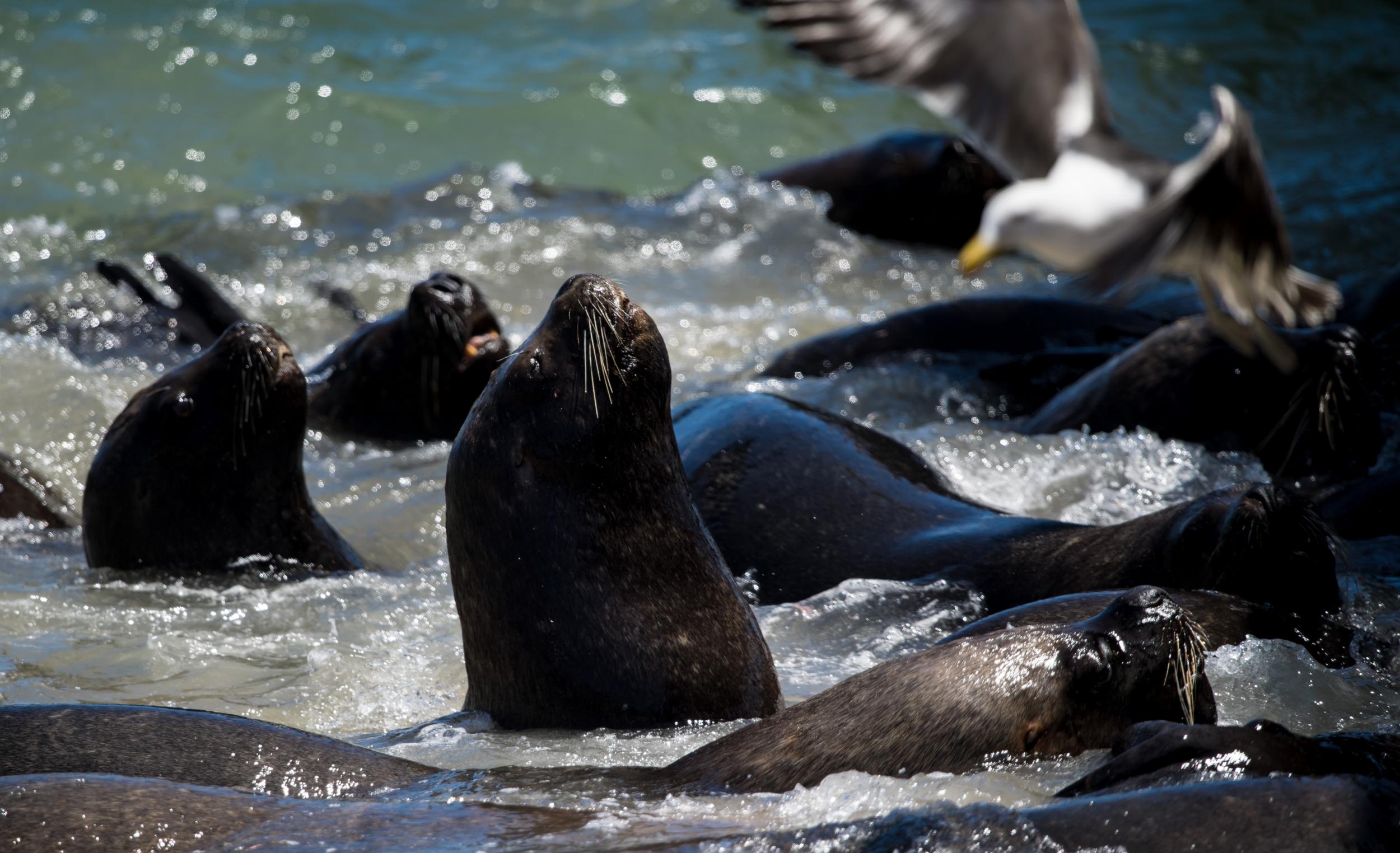Rare sea lion attack on teenager was because of algae poisoning, scientists suggest
Neurotoxins are the to blame for the normally peaceful animal's behaviour

A teenager in California was attacked by a sea lion last weekm and scientists say the aggressive move from the marine animal was likely the result of neurotoxin poisoning.
13-year-old Megan Pagnini experienced the rare attacked just off the shore on at Pismo Beach, a beach located on the state’s central coast.
"I was at the water, I was just playing around, jumping - having fun," the teen told Good Morning America in an interview on Friday. "And I was taking silly pictures, when all of a sudden, it came out of nowhere and bit my leg."
Sea lions are common in the area, but a violent streak from the mammals is not.
After the teen was secured, the sea lion believed to be the attacker was taken to the Marine Mammal Centre four hours north in San Francisco, where the animal was diagnosed with domoic acid toxicosis, officials from the Centre told The Independent.
Domoic acid is a neurotoxin produced by algae that accumulates in the shellfish and small fishes consumed by sea lions.
According to a study that the National Centers for Coastal Ocean Science began in California in 2009, domoic acid can lead to aggression in sea lions, though the Centre stresses that aggression is a conscious behaviour, or rather, the result of disorientation, seizures, sometimes blindness caused by domoic acid posioning.
"Domoic acid exposure can lead to short term effects (domoic acid poisoning) and long terms effects (domoic acid epileptic disease)," said John Ramsdell of National Oceanic and Atmospheric Administration, who led the study of the algae's effects on sea lion behaviour. "The aggressive behaviour is observed in the later phase, often well after the domoic acid is no longer present in the animal."
The increase in blooms is produced by "temperature regimes on currents and upwellings, which bring more nutrients and cold water from the ocean bottom that fuels the growth of the algae," Mr Ramsdell explained.
"There are a ton of factors in the ocean that could be contributing," the Centre added, "but we do know we see more California sea lions stranding with domoic acid toxicity in years when the ocean is warmer."
The teen, ABC reports, is in stable condition. The Centre says the sea lion is still undergoing treatment at their hospital, where she's on anti-seizure medication and "is very lethargic."
"Once her treatment is finished, our veterinarians will do a neurological assessment to see if she has recovered or not," they said. "Sadly, we have over 100 California sea lions at our hospital right now and the majority of them are suffering from the impacts of domoic acid toxicity. We’re responding to dozens of calls every day and doing as many rescues as we can. We’d ask the public to please keep their distance from any California sea lion on the beach and to call our 24-hour hotline at 415-289-SEAL if they see a marine mammal in distress."

Join our commenting forum
Join thought-provoking conversations, follow other Independent readers and see their replies
Comments
Bookmark popover
Removed from bookmarks